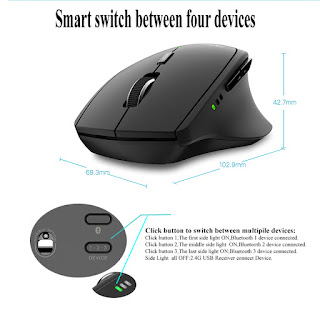#include <iostream>
#include <cstdio>
#define MAXC 2600
#define REPR(i, a, b) for(i=b ; i>=a ; i--)
#define REP(i, a, b) for(i=a ; i<b ; i++)
using namespace std;
char pow[20][160][MAXC]={0};
char mls[20][160][MAXC]={0};
char fin[20][160][MAXC]={0};
int RES[MAXC];
char RES2[MAXC];
int NUM, POW;
char NUMS[1023];
char IPOW[100];
int strpow(char *num, char *ml) {
int SP1 = strlen(num) - 1;
int SP2 = strlen(ml) - 1;
int SP3 = 0 ;
int I, J, K, CUR, CAR;
REPR(I, 0, SP1) {
for (K=SP3, J=SP2, CAR=0 ; J>=0 ; J--, K++) {
CUR = ((num[I]-'0')*(ml[J]-'0')) + RES[K] + CAR;
CAR = 0;
if (CUR>9) {
CAR = CUR/10;
CUR = CUR%10;
} else {
CAR = 0;
}
RES[K]=CUR;
}
if (CAR!=0) RES[K]=CAR;
SP3++;
}
while (RES[K]==0) K--;
for (I=0, K ; K>=0 ; K--, I++) {
pow[NUM][POW][I] = RES[K]+'0';
RES[K] = 0;
}
if (I==0) {
pow[NUM][POW][I++]='0';
}
pow[NUM][POW][I]='\0';
return 0;
}
int strmls(char *num, char *ml) {
int SP1 = strlen(num) - 1;
int SP2 = strlen(ml) - 1;
int SP3 = 0 ;
int I, J, K, CUR, CAR;
REPR(I, 0, SP1) {
for (K=SP3, J=SP2, CAR=0 ; J>=0 ; J--, K++) {
CUR = ((num[I]-'0')*(ml[J]-'0')) + RES[K] + CAR;
CAR = 0;
if (CUR>9) {
CAR = CUR/10;
CUR = CUR%10;
} else {
CAR = 0;
}
RES[K]=CUR;
}
if (CAR!=0) RES[K]=CAR;
SP3++;
}
while (RES[K]==0) K--;
for (I=0, K ; K>=0 ; K--, I++) {
mls[NUM][POW][I] = RES[K]+'0';
RES[K] = 0;
}
if (I==0) {
mls[NUM][POW][I++]='0';
}
mls[NUM][POW][I]='\0';
return 0;
}
int stradd(char *NUM1, char *NUM2) {
int LN_1 = strlen(NUM1);
int LN_2 = strlen(NUM2);
int TEMP, CAR, CUR, I, J, K;
char num1[MAXC], num2[MAXC];
strcpy(num1,NUM1);
strcpy(num2,NUM2);
if (LN_2 > LN_1) { /*-------Swap routine incase of the reverse------*/
TEMP = LN_2;
LN_2 = LN_1;
LN_1 = TEMP;
strcpy(RES2, num1);
strcpy(num1, num2);
strcpy(num2, RES2);
}
for (I=LN_1, CAR=0, J=LN_2, CAR=0, K=0 ; I>0 ; I--, J--, K++) {
CUR = (num1[I-1]-'0') + (J<1?0:num2[J-1]-'0') + CAR;
CAR = 0;
if (CUR>9) {
CAR = 1;
CUR = CUR%10;
} else {
CAR = 0;
}
RES2[K] = CUR + '0';
}
if (CAR) RES2[K++] = CAR + '0';
for (--K, I=0 ; K>=0 ; K--, I++) {
fin[NUM][POW][I] = RES2[K];
}
fin[NUM][POW][I] = '\0';
return 0;
}
int main() {
int I, N, A;
NUM = 1;
POW = 1;
for (I=0 ; I<160 ; I++) {
strcpy(pow[1][I],"1");
strcpy(pow[0][I],"0");
}
REP(NUM, 1, 20) {
sprintf(NUMS,"%d",NUM);
strcpy(pow[NUM][0],"0");
strcpy(pow[NUM][1],NUMS);
strcpy(mls[NUM][1],NUMS);
strcpy(fin[NUM][1],NUMS);
REP(POW, 2, 160) {
strpow(pow[NUM][POW-1],NUMS);
sprintf(IPOW,"%d",POW);
strmls(pow[NUM][POW],IPOW);
stradd(fin[NUM][POW-1],mls[NUM][POW]);
}
}
while (scanf("%d %d",&N,&A)!=EOF) {
if (N==0 || A==0) printf("0\n");
else printf("%s\n",fin[A][N]);
}
return 0;
}
Thursday, September 16, 2010
[UVa] 10523 - Very Easy!
It's a Big Number problem. Since the limits and the numbers are given, used a simple DP approach to solve it. Had to use two separate multiplication functions since the pointing system yielded some errors unresolvable by me.
Subscribe to:
Post Comments (Atom)
Connect Rapoo MT750S with Linux (Tested on Manjaro)
I bought this obvious copy of MX Master 2S in hopes of having the device switching functionality along with a lightweight body because I ha...

-
I like coding a lot, keeps me glued to the PC for hours. For that reason it's a need to edit the Syntax Highlighter to suit my eyes for...
-
I bought this obvious copy of MX Master 2S in hopes of having the device switching functionality along with a lightweight body because I ha...
-
Method: The problem at first glance seems too straightforward but it's not that much. Think a bit about the lines "Erin can add ...


No comments:
Post a Comment
Post your comment here. If you want to say something about programming problems, scripts, software etc, please try to be as descriptive as possible.